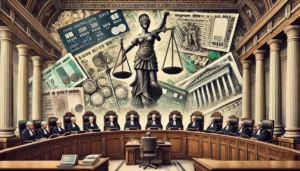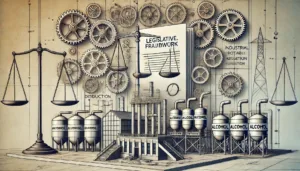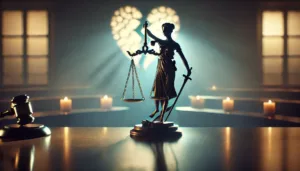Facts:
The case arises from a 1990 incident where an Australian national, Andrew Salvatore, was accused of carrying charas. During the trial, the size discrepancy of underwear marked as evidence (Mo2) led to his acquittal, with suspicions that Mo2 was tampered with to help his defense. The Kerala High Court ordered a detailed investigation, resulting in criminal charges against Court Clerk Mr. Jose and Advocate Antony Raju for conspiring to tamper with evidence. The proceedings were quashed by the High Court in 2022 due to procedural bars under Section 195(1)(b) of the Cr.P.C., prompting appeals to the Supreme Court.
Contentions of Appellant:
- M.R. Ajayan’s Contention: He argued as a socially spirited individual that the High Court’s quashing of proceedings ignored the gravity of tampering allegations, which harm judicial integrity.
- Antony Raju’s Contention: He contended that the High Court erred in directing de novo proceedings, which are impermissible under the law. He maintained that the evidence handling was lawful and challenged the locus of Ajayan.
Contentions of Respondent:
- Kerala State: It supported maintaining the quashed proceedings but emphasized that actions tampering with evidence critically erode justice and public trust.
- High Court’s Defence: It asserted that the bar under Section 195(1)(b) was rightly applied, preventing cognizance of the tampering offense without a valid judicial complaint.
Issues:
- Whether M.R. Ajayan has the locus standi to challenge the quashing of proceedings?
- Whether the High Court correctly applied the bar under Section 195(1)(b) of the Cr.P.C.?
- Whether the High Court rightly directed de novo action against the accused?
Principle of the Case:
Tampering with evidence in judicial custody undermines the sanctity of the judicial process and compromises public trust in justice. The procedural bar under Section 195 Cr.P.C. cannot override judicial authority to investigate offenses affecting court integrity.
Final Order:
The Supreme Court set aside the High Court’s order quashing proceedings and restored the criminal case for trial. It directed the Trial Court to conclude the case within one year, emphasizing the need for swift justice.
Impact on Public Law and Order:
This judgment reinforces the principle that tampering with judicial evidence is a grave offense that destabilizes trust in legal systems. By reasserting the judiciary’s role in prosecuting such acts, it deters future misconduct, ensuring that public confidence in the justice delivery system remains intact.
Case Citation:
Supreme Court of India
M.R. Ajayan v. State of Kerala & Ors.
Criminal Appeal No. (Arising out of SLP(Crl.)Nos.4887/2024 and 7896/2023)
Date of Judgment: November 20, 2024








